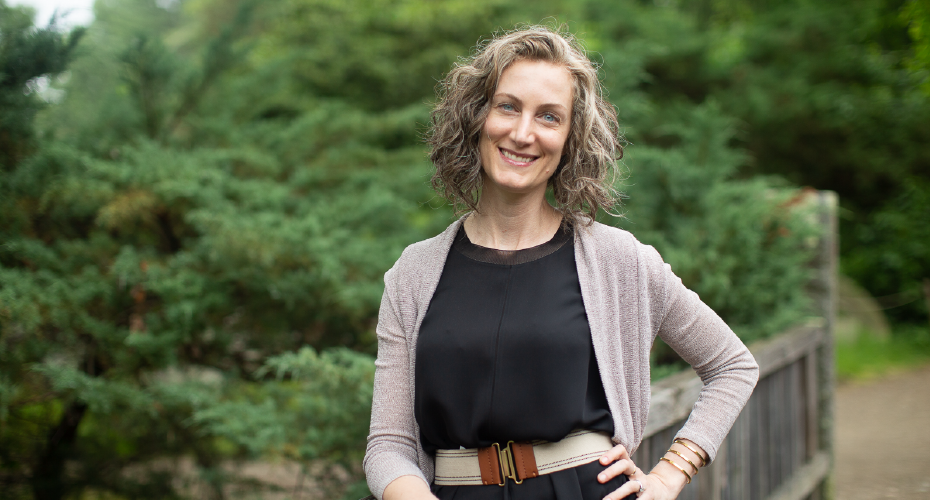Aug 13, 2019
'Get screened for colon cancer': Two young colorectal cancer survivors share their stories
Six years ago, at 34, the Sudbury, Mass., man was in great shape. He worked out four to five times a week, ate well and estimates his body fat was in the single digits.
Every once in a while, though, Herting noticed something wrong – clotted blood in his stool.
“I had no idea this might be cancer, it didn’t even cross my mind,” he recalls “I just noticed something that wasn’t supposed to be there.”
Herting says he had no pain, no other problems with his digestive track, but decided to say something to a friend who was a physician.
The doctor recommended he see a gastroenterologist, a physician who specializes in the digestive tract and liver.
He was diagnosed with colon cancer.
An alarming trend
According to the American Cancer Society, colorectal cancer is the third leading cause of cancer death among men and women in the U.S. The society estimates that more than 101,000 new cases of the cancer will be diagnosed and 51,000 people will die from the disease in 2019.
“The No. 1 myth about colon cancer is that it’s an older person’s disease,” said Dr. Ronit Yarden, medical director for the Colorectal Cancer Alliance in Washington D.C.
Recent research from the American Cancer Society has shown an alarming trend: an increase in the number of younger people diagnosed with the disease even as the overall rate of colorectal cancer is falling. Those born in 1990 have double the risk of colon cancer and quadruple the risk of rectal cancer compared to people born around 1950, when risk was lowest.
While experts can’t pinpoint a cause, “There are some leads the medical community is looking into,” says Yarden, “changes in the gut microbiome, lifestyle, and environmental exposures - we don’t know yet but I suspect we’ll find it is a combination of these factors and genetics.”
Early detection is crucial
While those with an average risk of colon cancer should get screened for colorectal cancer at 50, anyone with concerning symptoms should seek out medical care immediately.
There are a number of ways to screen for the cancer, but “the current gold standard,” according to Yarden, is a colonoscopy, a procedure in which a small camera is used to look for abnormalities in the rectum and colon. During the procedure, polyps, some of which can be pre-cancerous, are removed.
For those reluctant to get colonoscopies, there are several other proven screening methods clinicians can use to check for evidence of colorectal cancers in stool samples.
Colorectal cancer is curable if caught early but the five-year survival rate falls to 14 percent once the cancer spreads to other organs, Yarden said.
Overall, the American Cancer Society reports, the rate at which new colon and rectal cancer cases are diagnosed has been dropping in the U.S., in large part due to screening that catches colon or rectal cancer earlier.
People with a family history of colorectal cancer should get screened a full decade before the age their family member was diagnosed with the disease.
Warning signs and symptoms
Potential signs and symptoms of colorectal cancer may include:
| Anemia | Rectal bleeding, dark or black stool | Change in bowel habits |
| Diarrhea and/or constipation | Narrowing of stool | Persistent abdominal discomfort (pain, cramps, gas,feeling bloated) |
| Unexplained weight loss | Weakness or fatigue | Nausea or vomiting |
Among those were symptoms Tamara Barber (in photo at top) noticed back in 2013.
At 35, Barber, also of Sudbury “was just your typical busy, multitasking working mama” after giving birth to her third child. Like Herting, she ate well, was active and not overweight.
She had abdominal cramping she thought was due to her body re-adjusting after child birth. She also noticed blood in her stool but thought that was due to hemorrhoids. Eighteen months after first noticing symptoms, Tamara saw a gastroenterologist who diagnosed her with colon cancer.
Awareness and education save lives
It’s been six years since both Barber and Herting were diagnosed. As colon cancer rates increase among young adults, they want to make sure their peers are aware of the dangerous trend, even as the causes remain unclear.
“That’s the scary thing,” said Barber who was treated at Dana Farber Cancer Institute. “Specialists at one of the top cancer centers in the country have yet to identify what is driving this trend.”
“It’s not only patients that need to be aware of this recent trend, the medical community needs to be aware,” said Yarden. “Primary care physicians, nurse practitioners and others need to know about this trend of colorectal cancer in younger people.”
Herting is cancer-free, married and the father of an infant and an energetic toddler. But he says he still feels the effects of the surgery and chemotherapy needed to treat his cancer.
Barber was declared cancer-free after surgery to remove 20 percent of her colon and chemotherapy. But almost four years to the day after she completed treatment, a CT scan revealed a small tumor in her pelvis. She has just wrapped up radiation, more surgery and additional chemotherapy.
“If something is off with your body, you have to make time to check it out,” said Barber. “Don’t wait 18 months like I did.”
PHOTO BY STEPHANIE PAULOVICH

